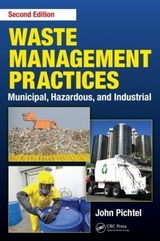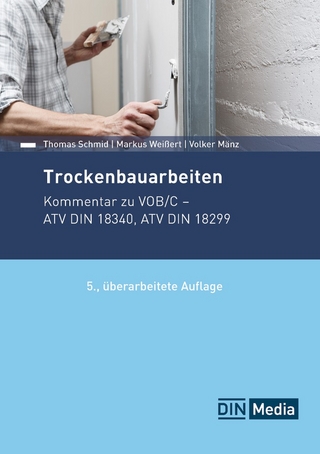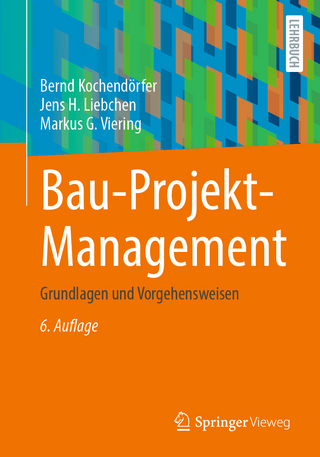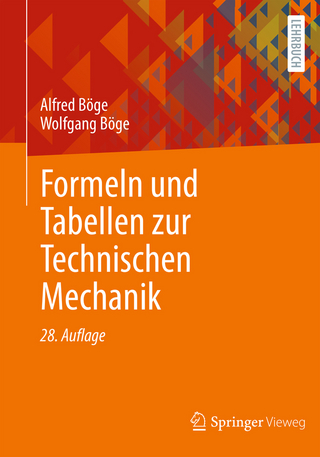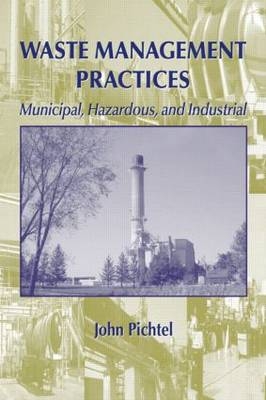
Waste Management Practices
Municipal, Hazardous, and Industrial
Seiten
2005
Crc Press Inc (Verlag)
978-0-8493-3525-9 (ISBN)
Crc Press Inc (Verlag)
978-0-8493-3525-9 (ISBN)
- Titel erscheint in neuer Auflage
- Artikel merken
Zu diesem Artikel existiert eine Nachauflage
A practical guide for the identification and management of a range of hazardous wastes. It integrates coverage of technical information with regulations. It delineates the management of municipal solid waste and covers conventional and innovative technologies. It emphasizes basic environmental science and related technical fields.
A practical guide for the identification and management of a range of hazardous wastes, Waste Management Practices: Municipal, Hazardous, and Industrial integrates technical information including chemistry, microbiology, and engineering, with current regulations. Emphasizing basic environmental science and related technical fields, the book is an introductory manual for waste management as mandated by Resource Conservation and Recovery Act and related statutes.
The first section of the book provides an overview of the historical and regulatory development of waste management. The second section delineates the management of municipal solid waste and includes coverage of conventional (e.g. sanitary landfill, aerobic composting) and innovative (bioreactor landfill, high-solids anaerobic digestion) technologies. The third section addresses hazardous wastes and their management, including identification, transportation, and requirements for generators and for treatment, storage, and disposal facilities. Disposition via incineration, chemical treatment, and land disposal are covered. The final section explores special categories of waste that often cannot find a regulatory "home" under either RCRA Subtitle D (Solid Wastes) or Subtitle C (Hazardous Wastes). Example waste types include used oil, construction and demolition debris, and electronics waste.
The garbage crisis, as it became known in the late 1980s, will not go away as long as humans continue to produce materials that nature does not possess the capability to decompose. Yet there are few, if any, references that collectively and comprehensively address the management of household, industrial, commercial, and hazardous wastes. Filling this need, Waste Management Practices focuses on the entire spectrum of wastes and their management.
A practical guide for the identification and management of a range of hazardous wastes, Waste Management Practices: Municipal, Hazardous, and Industrial integrates technical information including chemistry, microbiology, and engineering, with current regulations. Emphasizing basic environmental science and related technical fields, the book is an introductory manual for waste management as mandated by Resource Conservation and Recovery Act and related statutes.
The first section of the book provides an overview of the historical and regulatory development of waste management. The second section delineates the management of municipal solid waste and includes coverage of conventional (e.g. sanitary landfill, aerobic composting) and innovative (bioreactor landfill, high-solids anaerobic digestion) technologies. The third section addresses hazardous wastes and their management, including identification, transportation, and requirements for generators and for treatment, storage, and disposal facilities. Disposition via incineration, chemical treatment, and land disposal are covered. The final section explores special categories of waste that often cannot find a regulatory "home" under either RCRA Subtitle D (Solid Wastes) or Subtitle C (Hazardous Wastes). Example waste types include used oil, construction and demolition debris, and electronics waste.
The garbage crisis, as it became known in the late 1980s, will not go away as long as humans continue to produce materials that nature does not possess the capability to decompose. Yet there are few, if any, references that collectively and comprehensively address the management of household, industrial, commercial, and hazardous wastes. Filling this need, Waste Management Practices focuses on the entire spectrum of wastes and their management.
Preface
HISTORICAL AND REGULATORY DEVELOPMENT
Introduction
A Brief History of Waste Management
Regulatory Development
SOLID WASTES AND THEIR MANAGEMENT
Characterization of Solid Waste
Municipal Solid Waste Collection
Recycling Solid Wastes
MSW Processing; Materials Recovery Facilities
Composting MSW
Incineration of MSW
The Sanitary Landfill
HAZARDOUS WASTES
Identification of Hazardous Waste
Hazardous Waste Generator Requirements
Hazardous Waste Transportation
Treatment, Storage and Disposal Facility Requirements
Incineration of Hazardous Wastes
Hazardous Waste Treatment
Land Disposal of Hazardous Waste
SPECIAL CATEGORIES OF WASTE
Universal Wastes
Management of Used Oil
Medical and Infectious Wastes
Construction and Demolition Debris
Electronics Waste
Appendix
| Erscheint lt. Verlag | 29.3.2005 |
|---|---|
| Zusatzinfo | 150 Halftones, black and white; 186 Tables, black and white; 266 Illustrations, black and white |
| Verlagsort | Bosa Roca |
| Sprache | englisch |
| Maße | 178 x 254 mm |
| Gewicht | 1565 g |
| Themenwelt | Technik ► Bauwesen |
| Technik ► Umwelttechnik / Biotechnologie | |
| ISBN-10 | 0-8493-3525-6 / 0849335256 |
| ISBN-13 | 978-0-8493-3525-9 / 9780849335259 |
| Zustand | Neuware |
| Haben Sie eine Frage zum Produkt? |
Mehr entdecken
aus dem Bereich
aus dem Bereich
Kommentar zu VOB/C ATV DIN 18340, ATV DIN 18299
Buch | Softcover (2024)
DIN Media (Verlag)
69,00 €
Grundlagen und Vorgehensweisen
Buch | Softcover (2021)
Springer Fachmedien Wiesbaden GmbH (Verlag)
37,99 €
Buch | Softcover (2024)
Springer Vieweg (Verlag)
18,99 €
